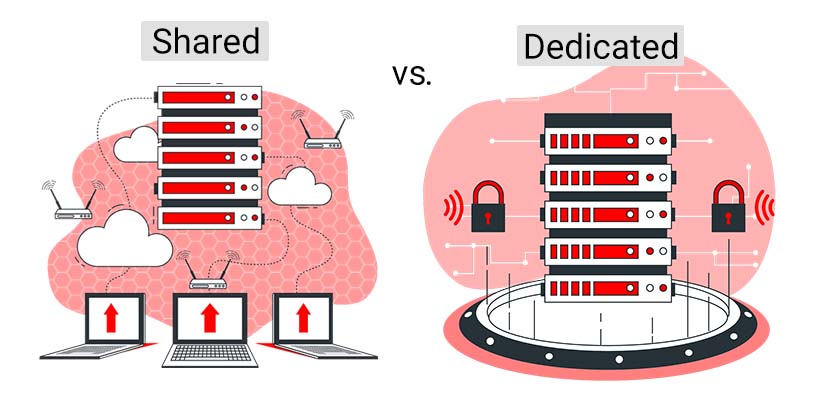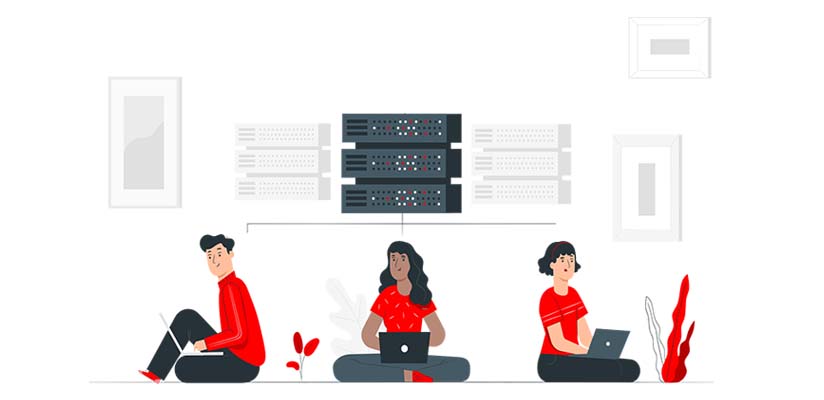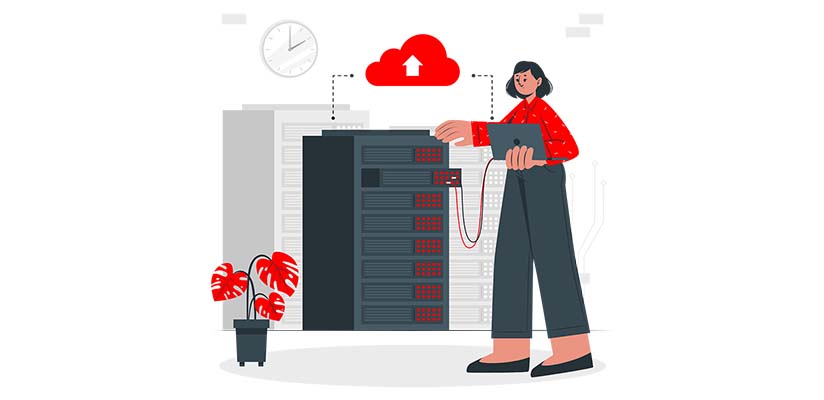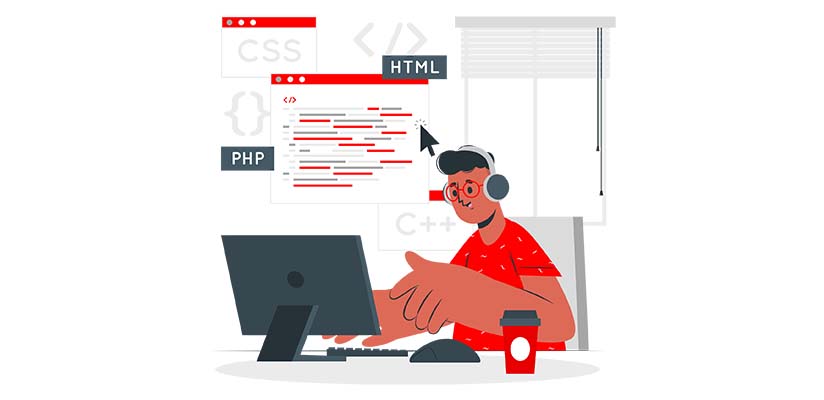
What are the best-dedicated web hosting services that you can choose from? Which dedicated hosting provider or dedicated hosting server is the right one for you? Should you even choose a dedicated hosting service or stick to shared hosting? In the world of web hosting, you have a choice between servers that are exclusively for your use and servers that are shared by a group of people – a shared server, to be precise. The decision between the two is more complex than just weighing the costs of each option. Because there are more variables to consider when deciding between shared hosting and dedicated hosting or managed dedicated hosting, we recommend that you choose managed dedicated hosting or dedicated hosting. Let’s have a look at it.
The following is a high-level overview of the two distinct models. On the one hand, when you have a dedicated or exclusive server, you have complete control over the whole computer and may operate it as you see fit. Consequently, you must decide how to manage and maintain it. Because your applications are the only ones operating on the computer, no other web applications will be able to compete for hosting resources.
Shared web servers, on the other hand, combine your web applications with those of other users. As a result, unless you have a service provider that allows you to modify server operations, you will not have complete control over server operations. To summarize, while comparing shared server hosting versus dedicated hosting, keep in mind that shared servers always come with limitations. However, shared hosting may be more cost-effective in certain situations.
What Are the Differences Between Shared Hosting and Dedicated Hosting?
Shared hosting is analogous to leasing and living in an apartment on a regular basis. The facilities of the apartment complex are available to all residents (in this case, users). When you sign a lease for an apartment, you commit to sharing the courtyard, playroom, parking lot, and swimming pool with your neighbors. This is true for both dedicated and shared hosting. All users collaborate to share the available resources with their respective ‘neighbors.’ Each ‘neighbor’ is given a certain quantity of resources that they may consume at any time. CPU use, memory consumption, and disk space are examples of amenities available in shared hosting.
A dedicated hosting server and dedicated hosting service differ from shared hosting in that none of the resources are shared among the users of the server. You are the only owner of all resources and server disk space. Dedicated hosting is comparable to the experience of owning a home. You won’t have to worry about your driveway, garden, or private swimming pool is shared with anybody else.
What Is Shared Hosting?

Shared hosting is a kind of web hosting that allows many websites to be hosted on the same server. Several people have compared shared hosting to a public transportation system, citing its low cost of operation and the fact that it entails sharing resources with other customers. On a single server, a huge number of websites may be hosted simultaneously, resulting in both benefits and drawbacks.
Pros of Shared Hosting?
The cheap cost of shared hosting is a significant reason for its widespread adoption. The maintenance expenses of a single server may be spread across a large number of users, resulting in lower individual prices for consumers. You also have the option of paying extra money to upgrade to hosting packages that allow for more traffic and more resources to be allocated. In this case, a dedicated hosting server.
Many individuals start their websites with shared hosting since it takes minimal technical expertise and does not necessitate in-depth knowledge of server architecture. Shared hosting plans provide a control panel to make website administration easier, as well as pre-installed applications to suit the majority of general-purpose websites. Hosting companies handle server maintenance, such as installing patches and updates, so you can focus on growing your company.
Cons of Shared Hosting
Shared hosting is ideal for new websites that need just the most basic resources and is expected to get only a small amount of traffic. However, there are certain drawbacks to using shared hosting. In the case of a server, the most apparent restriction is the communal sharing of processing power, memory, disk space, and all other resources available on the server.
The potential of the “bad neighbor effect” as a result of sharing server resources is one of the consequences of sharing server resources. This occurs when a single website on a shared server consumes all of the available resources, causing the performance of all other websites on the server to suffer. There is, however, little likelihood that this will really result in a visible problem since competent hosting providers offer more than enough resources to satisfy their customers. They’re also effective at regulating heavily visited websites, and they recommend that businesses that are expanding switch to higher-priced hosting providers that offer more bandwidth.
In addition, if another user on a shared hosting server is sending spam, your server’s IP address may be blacklisted, which may result in your site being blocked from accessing the internet. If you want to avoid getting your emails to end up in the spam folders of your receivers, select the best-dedicated web hosting services or proper hosting provider that has rules in place to prevent this from happening.
How Much Does a Shared Hosting Cost?
In terms of pricing per month, shared hosting may vary from $3.95 to $9.95 per month, depending on which web host you select.
What is Dedicated Hosting?

Devoted hosting refers to the fact that your website is hosted on a single server that is only dedicated to serving your website. Consequently, there is no longer any rivalry for resources as there is with shared hosting, resulting in more stable website performance.
If shared hosting is analogous to taking a public bus, then dedicated hosting is analogous to hiring a vehicle. The location of your vehicle, the speed at which it travels, and the radio station it plays are all more in your hands. However, it comes at a much higher cost and requires a greater level of expertise to keep it running. Dedicated hosting offers many of the same benefits and drawbacks as shared hosting. Hence why most people tend to choose a dedicated hosting provider.
Pros of Dedicated Hosting
With a dedicated hosting option, there is no need for server sharing, which eliminates the possibility of negative neighbor effects. All of the processing power, memory, and disk space available on your server may be dedicated to your website. Furthermore, no other user will be able to expose your website to cyber dangers or cause your server’s IP address to be banned without your permission.
Dedicated hosting provides you considerable flexibility, allowing you to fine-tune your server settings to your specific needs. It also grants you root access, which allows you to make changes to the program. When a website necessitates the use of a specialized application, the server configuration is usually considered valuable.
Cons of Dedicated Hosting
It should come as no surprise that more resources and control come at a higher financial expense. According to the hosting provider’s involvement in maintenance and security, dedicated server rentals may cost anywhere from $60 to $500 or more per month, depending on the configuration. Typically, a website that receives the volume of traffic that necessitates the use of dedicated server resources is lucrative enough to justify the expense of dedicated hosting.
Dedicated hosting solutions have another restriction in that they need a high degree of technical expertise, which is particularly true if you want to take advantage of the customization they provide. If technology isn’t your strong suit, you might employ a server administrator or buy dedicated hosting server that includes administrative assistance; however, both of these options will increase your expenses.
A new responsibility is imposed on you as a result of the fact that most of the server maintenance is left to your discretion. You are responsible for keeping your dedicated server up to date and applying patches, which may interfere with your ability to perform your other duties.
How Much Does a Dedicated Hosting Cost?
Dedicated hosting may cost anything from $60 per month to as much as $500 per month, depending on your requirements. Pricing is typically determined by the specs of the server and the inclusion of extra services.
Who Uses Shared Hosting?

If you’re a newbie to web hosting, a shared platform is a fantastic place to start learning the ropes while saving money. Businesses and websites with light to average web traffic and those that do not need sophisticated, specialized server settings will find it to be more than sufficient for their needs.
You might conceive of it as a big home where many people live in close proximity to one another. All of the expenses such as food, cleaning supplies, and energy are shared among the family members. Fortunately, the friendly landlord lives just next door in case the fridge quits functioning. Everyone benefits from the arrangement, and everything works out well as long as no one consumes milk straight from the container of course.
Who Needs Dedicated Hosting?

It is recommended for companies with very high bandwidth needs and highly specialized requirements to use dedicated hosting services. For example, big corporations with a significant amount of sensitive data may want to invest in dedicated hosting because of the increased degree of protection it offers. It also provides the most value to those who are technologically literate and can make use of the customizability.
Is Shared Hosting Safer than Dedicated Hosting?
Sadly, shared hosting security is much worse when compared to the protection provided by dedicated hosting, yet the vast majority of commercial and personal websites function just fine on a shared host. Your data is as secure as it can possibly be in a shared hosting environment, according to the vast majority of hosting companies. You are just renting a tiny piece of hard drive space, which means you are responsible for the security of your own website and hosting control panel. However, there is nothing you can do to prevent problems caused by other users on the same server from occurring.
Dedicated servers are the most secure of the three major types of hosting available: shared, virtual, and managed dedicated hosting, and they are the most expensive. DDoS prevention, as well as IP address filtering and other server-level capabilities, are often included with dedicated hosting plans. Furthermore, you will never be exposed to the risk of server problems caused by security flaws in another hosting customer’s website code or by site visitors, which may have a negative impact on the whole shared hosting environment. RAID storage, often known as a redundant array of separate drives, is included with the majority of dedicated hosting packages. RAID, often known as disk mirroring, is a method of ensuring that your data is secure and can be retrieved from several locations.
Which Hosting Plan Is Right for My Business?
Choosing the most appropriate web hosting package may save you a significant amount of time and money. If you don’t need a lot of bandwidth, memory, processing power, or control, shared hosting is a good option for you to save money. Dedicated web hosting, on the other hand, is recommended if your website needs a large number of server resources and your staff is capable of managing a customized hosting configuration. If your website falls somewhere in the middle, VPS hosting is the best option.
Read More: Dedicated Hosting vs. VPS Hosting – Which One Is Better?
A Quick Read-through to Choose the Best Option Between Shared Hosting and Dedicated Hosting

Performance
The higher the functionality of your website, the more enjoyable the user experience will be for your visitors. Because a shared hosting plan will always have a limited amount of resources, you will never be able to predict how well your site will run. If your website gets an average amount of traffic, consider the following scenario. Having a dedicated web hosting plan means you would never have to worry about the traffic of another user on your server. Because the server will be completely devoted to your site, you will be able to handle any bandwidth without experiencing any downtime. Consequently, if you have a significant amount of traffic and want to provide your visitors with a superior experience, dedicated hosting is the best option available to you.
Security
The fact that shared hosting servers are shared with other users creates the potential for a security breach, and if it is successful, it means that your team will have no control over how to respond. It is the specialists at the hosting business that install firewalls, server security software, and other security tools on your computer. Your information technology staff has complete control over the server’s security, and since the server is only devoted to your company, the odds of it acquiring malware, spyware, and other infections are very low when using a dedicated server. So, when it comes to security, dedicated hosting is the obvious victor; but, if you must use shared hosting, be sure you choose a trustworthy hosting provider.
Cost
In addition to pricing, shared hosting outperforms dedicated hosting in several other categories. Because a shared hosting plan allows many customers to use a single server, the costs are likely to be less expensive. It is the best option for new businesses and small financial firms with a limited number of clients. Because of its more appealing and economically feasible price, shared hosting is the preferred choice for most companies operating on a tighter budget.
Resources
If your company is growing and the amount of traffic on your website is increasing, the server’s bandwidth resources may be exhausted. As a result, the response and loading times are much slower. It is not your responsibility, but it is possible that the consumers will not recognize this. If another website receives a lot of traffic, you may find yourself in a bind. This is very rare to occur on a dedicated server, which is one of the reasons why dedicated servers provide superior performance.
Scalability (Traffic Volume)
It is true that dedicated hosting is more scalable and flexible than shared hosting in terms of scalability and flexibility. Dedicated hosting services are very scalable and adaptable to your needs. They are readily adaptable to changes in traffic volume, storage space requirements, user capacity, and the number of different software applications that are being hosted. Now, we wouldn’t go so far as to claim that shared hosting plans are incapable of scaling, but they certainly lag behind in this area of performance.
Flexibility (Configurability)
The most flexibility that shared hosting plans provide is the ability to expand the amount of HDD space available and the size of individual databases; however, you are unable to raise the amount of CPU power available or the amount of RAM being utilized on the server. This is due to the fact that shared hosting is a pooled service, with other customers using the same server and cloud infrastructure.
Data Backups
Shared hosting is designed for site owners who do not have the technical expertise to maintain and administer their own servers. However, the inability to exert adequate control has its own set of disadvantages. There are restrictions on the kind of programming language that may be utilized as well as the types of files that can be used. Dedicated hosting is the best option if you want complete control over your server’s resources and functionality. If, on the other hand, you require more resources for a big website, dedicated web hosting will be the best option to consider. However, in order to maintain such an account, you must have some technical expertise and experience. Because you have complete control over your hosting platform, you will be able to get frequent data backups in order to avoid any data loss.
Management
If you are utilizing shared hosting, your employees will not be required to have technical expertise. The shared hosting provider is responsible for the upkeep, security, and management of the website. However, if your company needs a dedicated server but you do not make the necessary investment, the drawbacks of shared hosting will become apparent within a few days of your decision to use shared hosting services.
Upgrading to a Dedicated Server
You can simply contact our team to upgrade your Shared Hosting to a Dedicated server without having to lose any of your data for completely free.
Conclusion
It is important to make an informed choice when selecting a web hosting plan for your website. If you choose the right package for your website, it will run at the fastest possible speed and with the best performance.
Shared hosting is the least costly choice, and it is also often regarded as the most straightforward to get started with. It is, in most cases, the ideal hosting plan for small websites and blogs.
Dedicated hosting brings a great deal of power and flexibility to the table, but it also carries with it a great deal of obligation. It is not the best hosting plan for each and every website, but it is well worth the investment for those who need full control over their website. Your website’s requirements, your technical understanding, and your budget are the important factors in deciding between shared hosting and dedicated hosting.
Leave a Reply